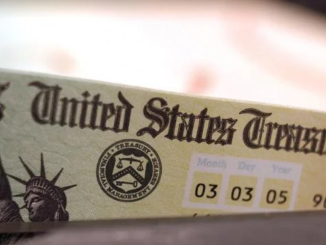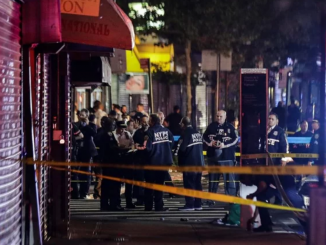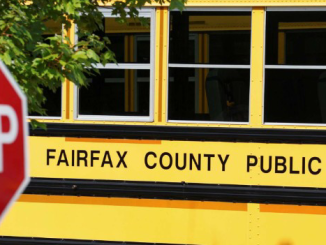
A Chattanooga, Tennessee, library fired Black Lives Matter activist and rapper Cameron “C-Grimey” Williams after he was reportedly caught burning books — but Williams says that the termination is nothing more than racial discrimination.
Williams had been a part-time employee at a downtown Chattanooga library branch for more than two years.
What are the details?
According to a report from the Washington Post, Williams filmed himself appearing to set fire to Ann Coulter’s “How to Talk to a Liberal (If You Must),” and former President Donald Trump’s “Crippled America.”
The Post reported that Williams said the move was in response to the library’s directive to “comb through the shelves of his branch in Chattanooga, Tenn., looking for books that were damaged, outdated, or untruthful.”
Of his own accord, the outlet reported, Williams determined that the Coulter book and the Trump book fit at least one of those criteria.
“The branch managers told employees they could bring home any weeded-out titles, he said. But Williams, a rapper who helped organize demonstrations against police brutality last year, reportedly had other plans for the books he picked out,” the Post noted.
A December article from Chattanooga Times Free Press revealed that Williams shared a video to Instagram, which appeared to show him burning the books “in an outdoor fire, spraying each with lighter fluid.”
“‘FDT,’ a Trump protest song by YG and Nipsey Hussle, played in the background,” the outlet reported.
The library caught wind of the video, though it only appeared briefly on Instagram, and immediately placed Williams on paid administrative leave following an investigation into the incident.
At the time, a spokesperson for the library said that any “personal feelings” should not play a role in discerning what books ought to be removed from the public library’s shelves.
“It’s our job to ensure that all walks of life have access to information without judgment or prejudice,” the spokesperson added. “Whether these materials were actually destroyed in a fire or even if they were just removed, that does go against our policy. Because at the end of the day, we believe that censorship has no place in a library.”
What happened then?
On Wednesday, the library formally fired him over the incident and insisted that Williams was insubordinate in “improperly removing items from the Library’s collections.”
Williams, however, insists that he did not break any rules, followed the directive, and added that the library only fired him because of his “prominent role [in] leading racial justice protests in Chattanooga.”
“This is not the precedent on how this stuff is handled,” he told the Post. “To be frank, it’s because I’m a community member that’s been speaking for the betterment of black people for several years.”
The Post added, “He said his boss asked him to weed through the political science section, specifically citing his activist background, and instructing him to take down titles that contained misinformation or where views, attitudes, or information had changed. Books more than 10 years old could also come off the shelves.”
Williams said that Coulter’s 2004 book fit the criteria on its age and that Trump’s book raised flags as a result of the Jan. 6 U.S. Capitol incursion, over which the former president was impeached due to what many people said was his instigation of the deadly riot. Trump was ultimately acquitted.
In 2020, as the Post pointed out, Williams was instrumental in leading demonstrations across the city against police brutality and ended up arrested for reportedly blocking an emergency vehicle and more.
What is the library saying about this?
A news release from the library stated that Williams acted improperly in removing the books.
“The City of Chattanooga Human Resources Department completed its investigation of an allegation that books were removed from the Chattanooga Public Library’s Main Branch on Dec. 1, 2020,” a portion of the release stated. “The investigation determined that [Williams] violated City and Library policies by improperly removing items from the Library’s collections.”
Corinne Hill, the city’s public libraries director, told the Post, “The City of Chattanooga has policies in place to protect the public’s interest, and we follow those directives.”
The Post also noted that library officials said neither book in Williams’ possession had been flagged for removal.
“Time after time, we’ve used old books for art projects,” Williams insisted. “Time after time, employees have been encouraged to take books.”
“This is a BS rule that doesn’t exist,” he complained. “They’re just using it to persecute me.”
A spokesperson for the library previously told the Chattanooga Times Free Press that its management trained Williams in the library’s “rigorous and thorough standard practice” for maintaining order on the library’s shelves.
“I was treated as a token black man,” he added, “but as soon as I speak forcefully for black people, they essentially tried to assassinate my character.”
He told the Times Free Press that he and his attorney attempted to work with the library on a deal where he could return books still in his possession and reimburse the library for those books that “could not be returned.”
The city, he said, declined his offer.
“That wasn’t good enough, which leads me to believe that this had nothing to do with the books being missed, and had to do with whatever reason they were looking for to get rid of me,” he insisted. “I really believe that this was political. It’s definitely a perpetuation of white supremacy. None of this would have ever, ever, ever been a problem if someone who doesn’t believe in me speaking for equality for black people wouldn’t have reported it.”
*story by The Blaze


